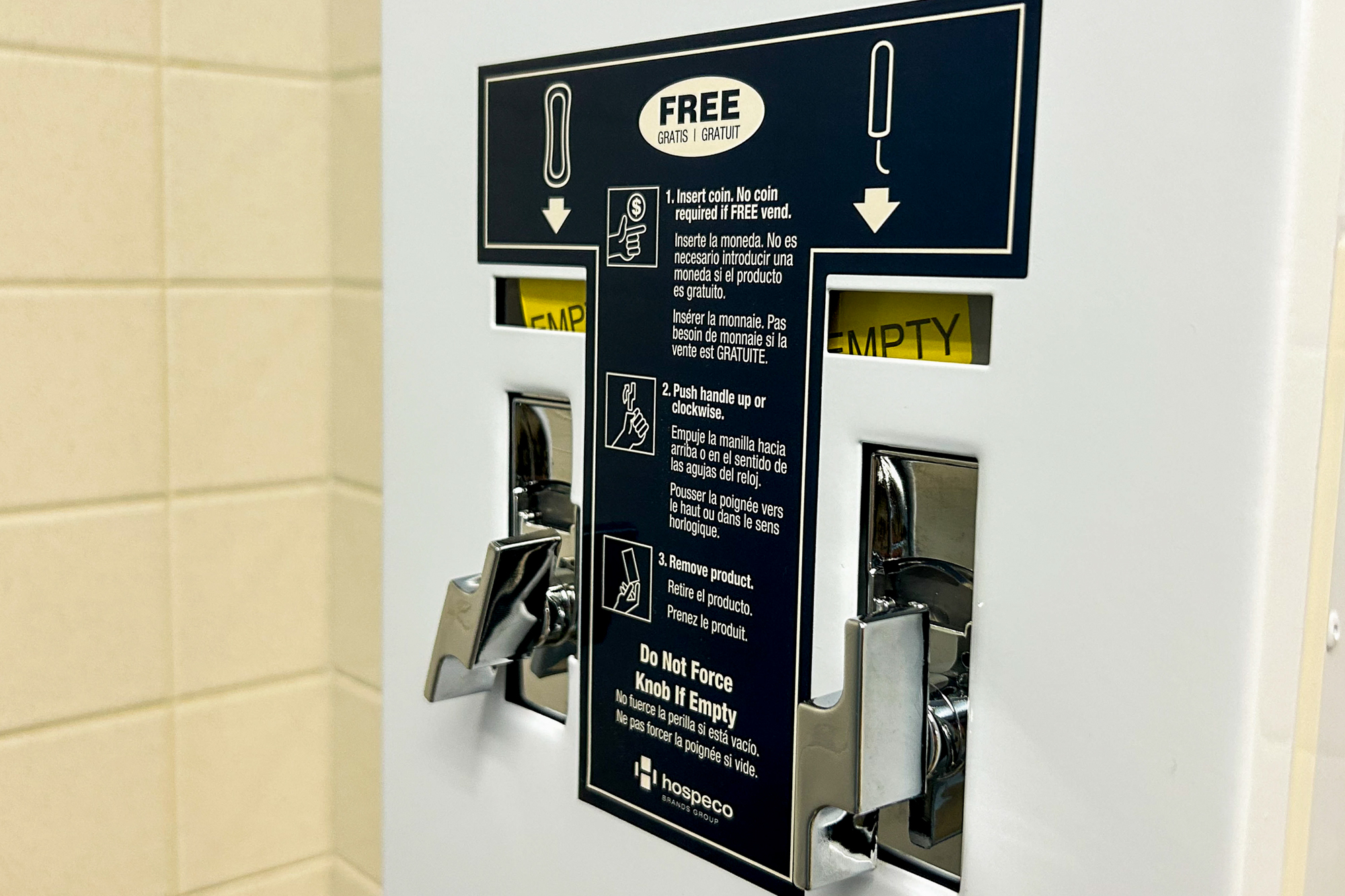Views expressed in opinion columns are the author’s own.
One day, in my first semester at the University of Maryland, I had just finished my first lecture of the day and decided to go to the bathroom. To my surprise and dismay, my period had started — while I was wearing white pants. My original plan for the day was interrupted, and I had to call my brother to come drive me to my dorm. The University of Maryland had free tampons available, and even though I didn’t use any, it was nice to know I had that option. Because one thing periods shouldn’t do is cause students to miss school or not be able to focus because they don’t have access to menstrual products.
Unfortunately, students at other colleges might not be as lucky. This is why this university should partner with other schools that don’t have these equitable practices in place to increase access to period products.
We live in a society, unfortunately, where some states tax items as if it’s a luxury. Sometimes, I think vocabulary isn’t taught in schools like it used to be because some state politicians clearly don’t know what “luxury” means. The quick definition is: something inessential, often expensive and difficult to obtain. But tampons are essential because we don’t choose to menstruate monthly, our bodies just do it. This is exactly why it is so frustrating that some state governments still believe menstrual care is a luxury that should be taxed.
This university is a great example of what policies a school should have when it comes to access to menstrual products, providing free tampons and pads in many bathrooms across the campus. Part of why is because this university is in one of 23 states that doesn’t tax menstrual products. While this is a great thing for students and residents in Maryland, we can’t just ignore the terrible injustices happening in other states and countries.
Worldwide, there are 500 million people twho don’t have access to menstrual products. One school cannot fix a global problem, but one school can influence other institutions to help alleviate the problem in the same way it does.
About 25 percent didn’t have adequate access to period products as of 2021, which is most likely due to the fact that only 15 states required free access to period products for students while in school last year. The added stress of not being able to access menstrual products can distract a student from their education.
If this university were to partner with other schools, then there could be more resources available at hand to help students struggling with period poverty. Now, I understand this university’s budget should go toward our own school, including dorms because everyone knows those poor freshmen in Hagerstown Hall are suffering without air conditioning. But this university could work with other schools by providing education on ways to implement similar policies and the best way to budget their money to bypass these taxes. A big part of passing any law or initiative is knowing how to do it efficiently. This university evidently does it well enough, so it should teach other universities how to do so as well.
I am not asking this university to give every bit of their budget to other institutions. I am asking this university to communicate and work with other institutions that don’t have equitable measures, such as providing free tampons in bathrooms, so these institutions are more inclined to pass similar initiatives. If I had someone giving me a successful and applicable blueprint of something that could help my life immensely, I’d go right ahead.
This still begs the question: Why should this university care? It’s because not all students at this university are from Maryland. Students here come from all over the country and world. In addition, some of the university’s students transfer here from other institutions, or continue their education at other universities. Caring about our students should continue before and after their time here.
If this university genuinely cares for the higher education of its current and potential students, it shouldn’t just sit around and not say anything about obstacles that are in the way of students at other schools. To show genuine care about this period poverty crisis, this university should continually make efforts to ensure period products are available to everyone. Advising and collaborating with other schools is the way to do so.
Medhanit Desta is a freshman engineering major. She can be reached at mdesta@terpmail.umd.edu.



